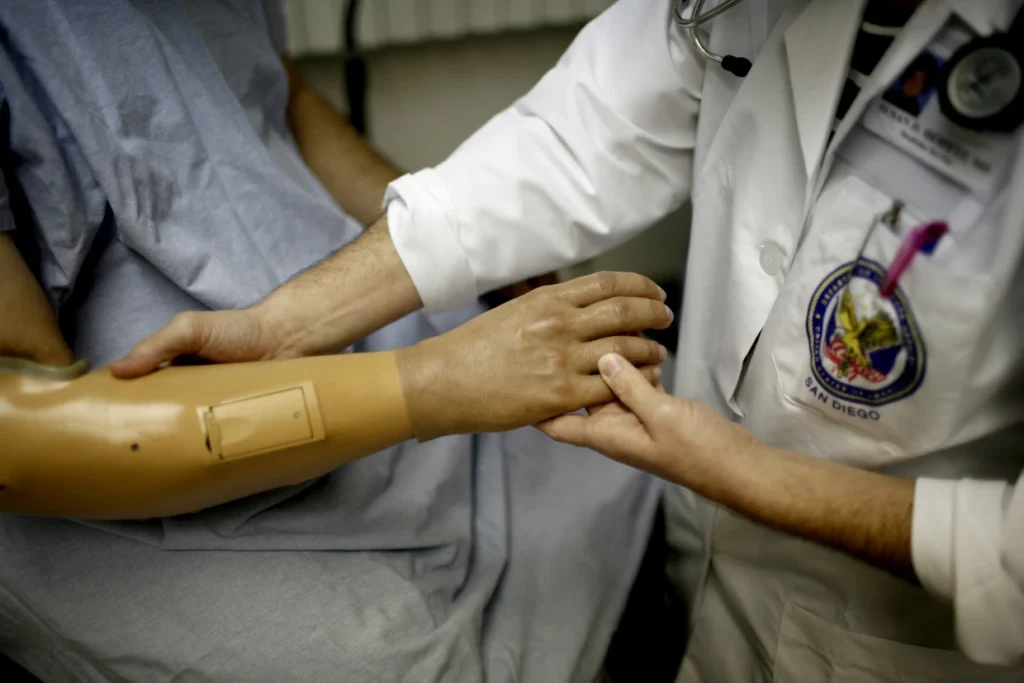Navigating the complex world of VA billing for prosthetics can be overwhelming for veterans and their families. Many people feel overburdened by the intricate VA billing and reimbursement processes. This article attempts to offer a thorough guide for comprehending and navigating these procedures in order to guarantee that veterans receive the prosthetics and equipment they require through the VA healthcare system.
What Are Veteran Prosthetics and Equipment?

Veteran prosthetics and equipment include a broad spectrum of tools and innovations to replace amputated limbs or assist with different physical tasks; for veterans who have suffered injuries while in the military, these prosthetics are essential to enhancing their quality of life. The VA prosthetics program is committed to providing these necessary devices to guarantee that veterans receive the greatest care and assistance possible.
The Significance of Prosthetics for Veterans
Prosthetics are essential to helping veterans recover and reintegrate into society. They improve mood and self-esteem and restore bodily function. By granting veterans access to top-notch prosthetics via the VA healthcare system, they are guaranteed more autonomy and fulfillment. These gadgets demonstrate the country’s dedication to helping its heroes.
How an Insurance Policy Can Affect the Outcome?
The availability and caliber of prosthetic care for veterans are largely determined by insurance policies, especially those managed by the VA healthcare system. The extent of coverage, the nuances in the policy language, and the familiarity withVA Billing and Reimbursement practices all influence how prosthetics are provided overall. For this reason, to maximize their benefits and ensure that they receive necessary prosthetic services, veterans must thoroughly understand their insurance policies. Veterans can effectively navigate potential coverage limitations by being aware of these policies. This helps ensure they receive the necessary prosthetic solutions that meet their needs without needless delays or complications.
How to Navigate VA Billing and Reimbursement for Prosthetics?
Comprehending the VA’s billing system and procedures is essential when navigating prosthetics billing. The following steps will help veterans navigate this process:
- Understand Your Eligibility: Determine your eligibility for prosthetic services under the VA program. Eligibility is typically based on service-connected injuries and other criteria set by the VA.
- Consult with VA Medical Facilities: Work with the VA medical facilities for assessments and recommendations regarding the needed prosthetics. These facilities have professionals on site who can guide you through the process.
- Get Pre-Approval: As such, check with the VA to make sure you have pre-approval for any prosthetics before obtaining them. This step is important to ensure you do not have any surprise out-of-pocket costs.
- Work with Medical Billing and Consulting Experts: This may be the time to look into the help of medical billing and consulting firms, such as Synergy HCLS. They are well-versed in the intricacies of VA billing and reimbursement procedures and can help you navigate the system efficiently.
- Keep Detailed Records: Keep detailed records of everything you do with the VA, whether it’s an appointment you had, an approval you received, or a billing statement. Practically speaking, this record would be critical in the event that a dispute or counterclaim arises.
Enhancing Veteran Healthcare Through Efficient Billing
Efficient bill payment is essential to improving veteran healthcare. Veterans can obtain prompt and sufficient assistance by streamlining VA Billing and Reimbursement for prosthetics. Here are a few suggestions for enhancing the billing system:
- Automate Billing Processes: Implementing automated billing systems can reduce errors and expedite reimbursement. Automation also ensures that all necessary documentation is submitted promptly.
- Training and Education: Ongoing training and education for VA staff on the latest billing practices and technologies. This is especially important in understanding the unique needs of the veteran population.
- Collaborate with Experts: Consider enlisting the help of medical billing and consulting professionals, like Synergy HCLS, who can offer additional expertise and guidance. CFOs can recognize bottlenecks and recommend best practices for streamlining VA billing and reimbursement procedures.
- Continuous Improvement: Effective medical billing practices can lead to improved revenue cycle management for medical services and better patient care. Veterans deserve the highest quality care and support, and continuous improvements are an important part of that process.
Summing up
Veterans can successfully navigate the difficulties of VA Billing and Reimbursement for prosthetics by being aware of the procedures and making use of the resources that are available to them. The first step in the process is to comprehend your eligibility under the VA prosthetics program, which depends on certain VA requirements and injuries related to the military. This clarity is essential to obtaining the required advantages. The next step is to consult VA medical facilities, where trained personnel conduct evaluations and suggest appropriate prosthetics suited to each patient’s needs. Veterans will always receive the best devices, thanks to this expertise.
Obtaining preapproval from the VA before purchasing prosthetics is essential to prevent unforeseen costs. This step entails confirming coverage and submitting the required paperwork to avoid financial surprises.VA billing is streamlined by working with medical billing specialists like Synergy HCLS. Their knowledge of VA billing systems guarantees proper administration and payment, reducing the load on administrative staff. Effective billing procedures prioritize prompt and sufficient assistance in addition to streamlining financial operations improving veterans’ general standard of care.
Eventually, veterans can navigate VA billing for prosthetics effectively, ensuring they receive necessary devices promptly and without complications, by understanding eligibility, consulting with VA facilities, obtaining pre-approval, and working with experts like Synergy HCLS.
